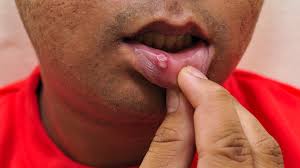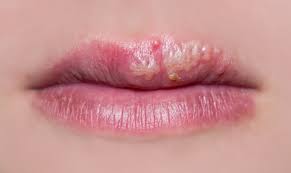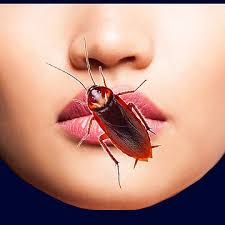
Effective Cold Sores Treatment Options Explained
Understanding Cold Sores treatment: Do Cockroaches Cause Cold Sores?
Coldsores, also known as fever blisters, are a common viral infection affecting millions worldwide. Whether you’re experiencing your first outbreak or seeking ways to prevent future occurrences, we will provide you with the information you need to understand and manage this pesky condition.

Coldsores, also known as fever blisters, are a common ailment that many people experience at some point in their lives. These small, fluid-filled blisters can be uncomfortable and unsightly, leading to various misconceptions about their causes. One such myth suggests that cold sores are caused by cockroach bites. We’ll now explore everything you need to know about cold sores, including their causes, treatments, and prevention strategies.
Overview of ColdSores
Cold sores are small, fluid-filled blisters that typically appear on or around the lips. They are caused by the herpes simplex virus (HSV), with HSV-1 being the primary culprit for oral herpes. Cold sores are highly contagious and can be transmitted through close contact with an infected person, such as kissing or sharing utensils.
The herpes simplex virus (HSV) is a common and highly contagious virus that manifests in two main types: HSV-1 and HSV-2. HSV-1 is primarily associated with oral herpes, characterized by cold sores or fever blisters that typically appear on or around the lips. On the other hand, HSV-2 is responsible for genital herpes, which manifests as sores or blisters in the genital area.
Both types of HSV can be transmitted through close contact with an infected individual or through contact with infected bodily fluids, such as saliva or genital secretions. Once infected, the virus remains dormant in the body and can be reactivated by various triggers, including stress, illness, hormonal changes, or sun exposure. While there is no cure for HSV, antiviral medications can help manage symptoms and reduce the frequency of outbreaks. Additionally, practicing safe sex and maintaining good hygiene can help prevent the spread of the virus to others.
The Cockroach Myth

The idea that cockroach bites can cause coldsores may stem from the misconception that these insects carry and transmit the herpes simplex virus (HSV). While it’s true that cockroaches can carry various pathogens and bacteria, there is no evidence to suggest that they are capable of transmitting HSV, the virus responsible for cold sores.
There is no scientific evidence to support the idea that cockroach bites can cause coldsores. While cockroaches are known to carry various pathogens, including bacteria and parasites, they do not transmit the herpes simplex virus. Coldsores are exclusively caused by HSV, which is primarily transmitted through direct contact with an infected person.
Factors That Trigger Cold Sore Outbreaks:
While the herpes simplex virus is the primary cause of coldsores, various factors can trigger outbreaks, including:
- Emotional or physical stress can weaken the immune system, making it easier for the virus to reactivate.
- Overexposure to sunlight, especially on the lips, can trigger cold sore outbreaks.
- During periods of illness or when the immune system is compromised.
- Fluctuations in hormone levels, such as those experienced during menstruation, can increase the risk of cold sore outbreaks.
Prevention Strategies for coldsores:
While coldsores cannot always be prevented, certain measures can help reduce the risk of outbreaks:
- Wash your hands regularly and avoid touching your face, especially during an outbreak.
- Identify and avoid factors that may trigger cold sore outbreaks, such as stress, sunlight, or certain foods.
- Apply sunscreen or lip balm with SPF to protect your lips from sun exposure.
- Avoid sharing personal items like utensils, towels, or lip balm with others, especially during an outbreak.
- Incorporate stress-reduction techniques into your daily routine, such as meditation, exercise, or deep breathing exercises.
- Practice good hygiene, such as washing your hands regularly and avoiding touching your face.
- If you experience frequent or severe cold sore outbreaks, consult with a healthcare professional for personalized guidance and treatment options.
Treatment Options:
While there is no cure for the herpes simplex virus, several treatment options can help alleviate the symptoms of coldsores and promote faster healing:
- Prescription antiviral medications, such as acyclovir, valacyclovir, and famciclovir, can help reduce the severity and duration of cold sore outbreaks.
- Topical treatments like over-the-counter creams and ointments containing ingredients like docosanol or benzyl alcohol can provide relief from pain and itching.
- Home remedies like applying ice packs, petroleum jelly, or tea tree oil to coldsores may help soothe symptoms and promote healing.
While the idea of cockroach bites causing cold sores may sound plausible to some, it is simply a myth without any scientific basis. Cold sores are caused by the herpes simplex virus (HSV) and are primarily transmitted through direct contact with an infected person. They can be a frustrating and uncomfortable condition, but with proper understanding and management, you can minimize their impact on your life. By knowing the causes, treatments, and prevention strategies for cold sores, you can take proactive steps to keep outbreaks at bay and enjoy optimal oral health. If you experience frequent or severe cold sore outbreaks, consult with a healthcare professional for personalized guidance and treatment options.
Disclaimer: The information provided in this content is for general informational purposes only. It is not intended as medical or healthcare advice, diagnosis, or treatment. Always seek the advice of a qualified healthcare professional with any questions you may have regarding a medical condition or healthcare decisions.

